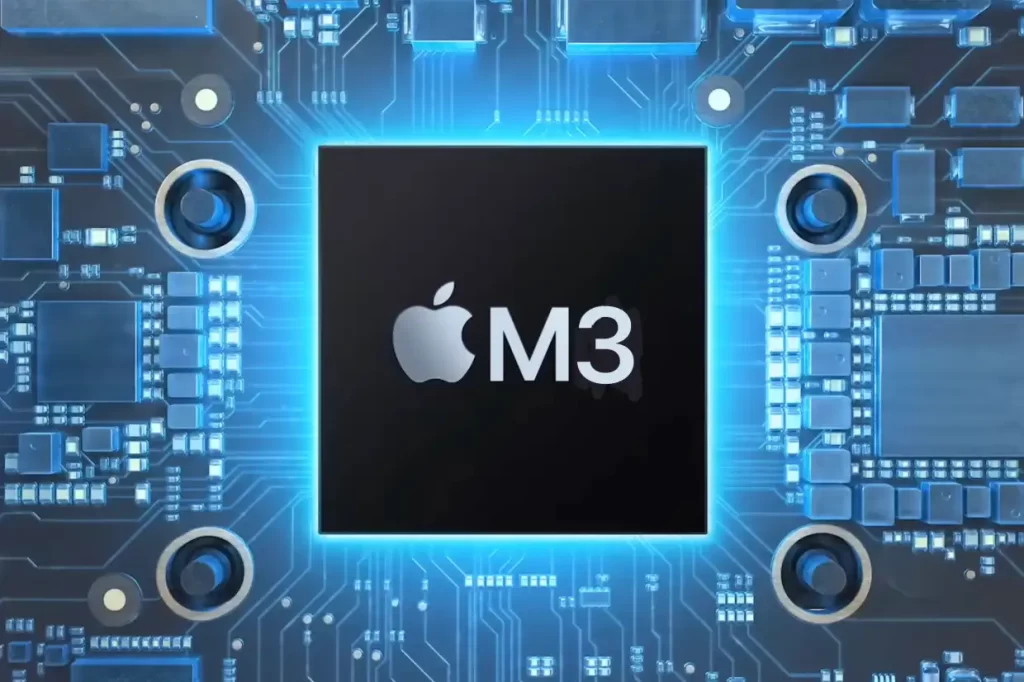In the ever-evolving landscape of technology, Apple has consistently proven its mettle by pushing boundaries and redefining industry standards. As we eagerly await the arrival of new Macs this fall, exciting rumours have emerged that Apple is testing its highly anticipated M3 chips. If these speculations hold true, we could witness a groundbreaking shift in Mac performance that sets a new benchmark for computing excellence.
Apple may be releasing a new Mac Mini with their innovative M3 chip in 2024! According to Bloomberg’s reliable source Mark Gurman, Apple is currently testing a computer with the model identifier Mac 15,12 that could potentially be the next Mac Mini.
Here are some exciting details: the tested model features an eight-core CPU, a 10-core GPU, and a whopping 24GB of RAM, running on macOS Sonoma 14.1. These specs are similar to the base model M2 Mac Mini, except for the upgraded memory.
Although Apple has projected a decline in Mac revenue for the fourth quarter of this year, Gurman doesn’t expect any M3-powered Macs to hit the market until the first fiscal quarter of 2024, which begins in October.
With this potential release, Apple’s lineup of M3 Macs could reach a total of six, covering all their primary desktops and laptops, including the highly anticipated refreshed iMac. However, don’t hold your breath for M3 versions of the Mac Studio and Mac Pro just yet, as they only recently made the switch to Apple’s M2 silicon earlier this year.
Potential Advancements of the M3 Chips
- Enhanced Performance: The most anticipated improvement in the M3 chips is undoubtedly the performance boost. Apple’s track record suggests that these chips will likely feature even more advanced CPU and GPU architectures, translating to faster processing speeds, quicker multitasking, and improved graphics rendering. This is fantastic news for professionals in creative fields like video editing, 3D rendering, and graphic design.
- Optimized Power Efficiency: One of the hallmarks of Apple Silicon is its ability to deliver impressive performance without sacrificing power efficiency. The M3 chips are expected to continue this trend, potentially allowing for longer battery life on laptops and lower energy consumption across all devices. This could fundamentally change the way we use and perceive computing devices.
- Machine Learning and AI: Apple has been placing considerable emphasis on machine learning and artificial intelligence. The M3 chips might come with dedicated hardware accelerators for machine learning tasks, enabling faster and more efficient AI computations. This could open up new possibilities in areas like natural language processing, image recognition, and more.
- Unified Architecture: As Apple’s silicon lineup expands, a unified architecture approach becomes more feasible. This means that software developers can create applications that seamlessly run across various Apple devices, from iPhones to Macs. The M3 chips could further enhance this capability, fostering a more cohesive and integrated ecosystem.
- Thermal Management: Apple’s advanced thermal management systems have been crucial in ensuring sustained performance without overheating. The M3 chips could introduce even more refined cooling solutions, allowing for sustained high-performance tasks without compromising the user experience.
Implications for the Future of Mac Devices
The introduction of M3 chips could be a turning point for the Mac lineup, redefining what’s possible in terms of performance, efficiency, and innovation. From the MacBook Air to the Mac Pro, each device could see dramatic improvements that cater to the unique needs of their users.
Additionally, the potential launch of the M3 chips may signal Apple’s commitment to driving its entire product ecosystem with in-house silicon. This strategic move not only allows Apple to have more control over its hardware and software integration but also enables them to fine-tune devices to their exact specifications, resulting in a more optimized and user-centric experience.
